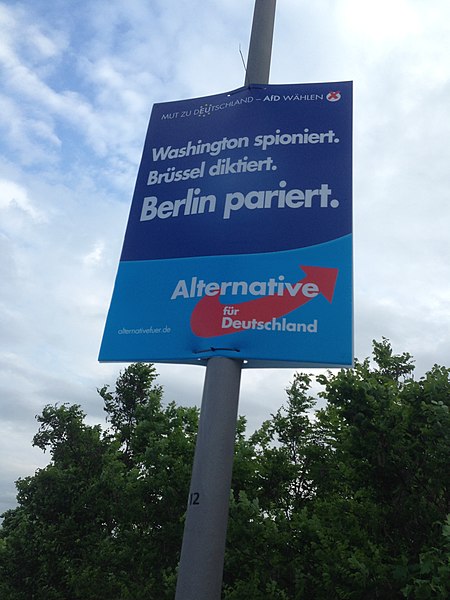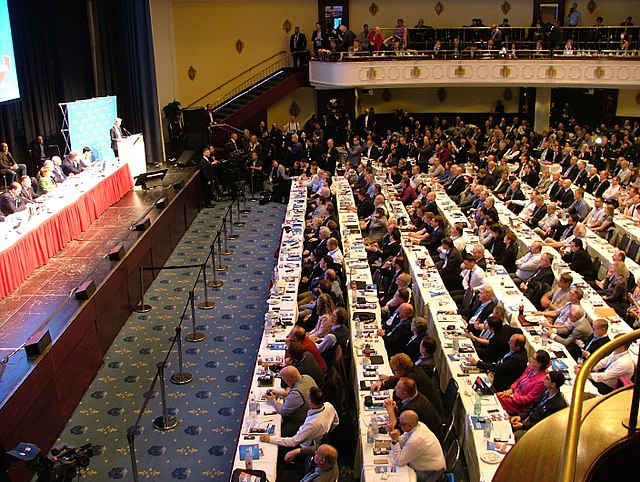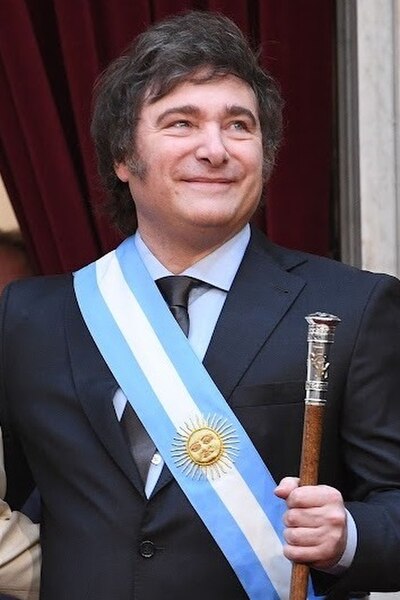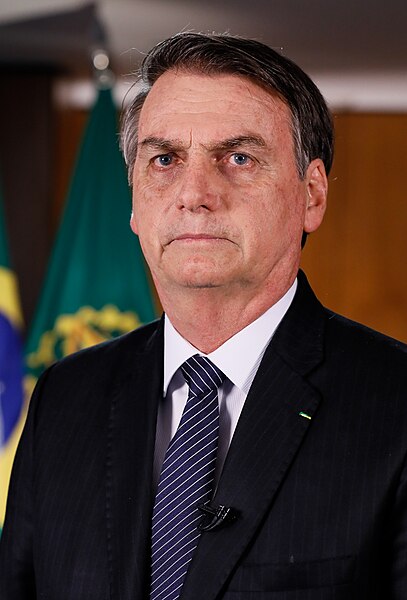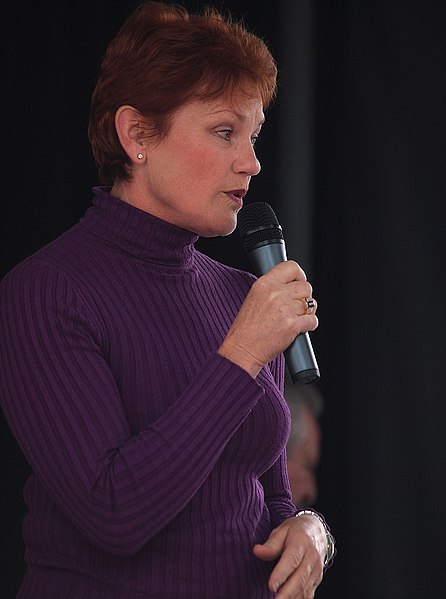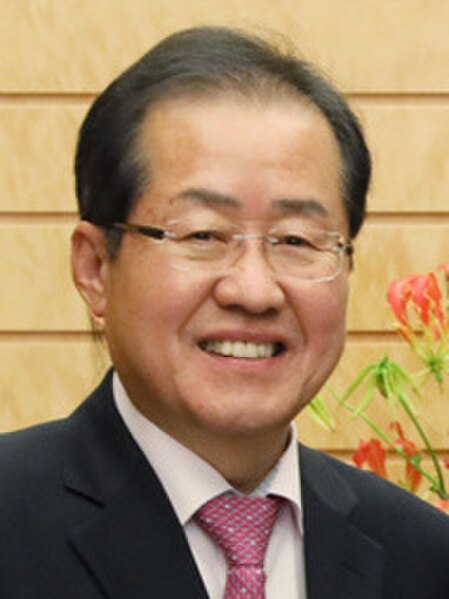Alternative for Germany is a right-wing populist political party in Germany. AfD is known for its Euroscepticism, as well as for opposing immigration to Germany. Described as a party of the far-right, the AfD is commonly positioned on the radical right, a subset of the far-right within the family of European political parties that officially does not reject democracy., although by the German judiciary it is suspected as being extremist.
Konrad Adam (left), Frauke Petry, and Bernd Lucke during the first AfD convention on 14 April 2013 in Berlin
Former "Courage [to stand up] for the truth! The euro is dividing Europe!" tagline on election placard 2013
AfD election poster from 2014. The slogan translates as "Washington spies. Brussels dictates. Berlin obeys."
National party convention in Cologne in April 2017
Right-wing populism, also called national populism and right-wing nationalism, is a political ideology that combines right-wing politics with populist rhetoric and themes. Its rhetoric employs anti-elitist sentiments, opposition to the Establishment, and speaking to or for the "common people". Recurring themes of right-wing populists include neo-nationalism, social conservatism, economic nationalism and fiscal conservatism. Frequently, they aim to defend a national culture, identity, and economy against perceived attacks by outsiders. Right-wing populism has remained the dominant political force in the Republican Party in the United States since the 2010s.
Incumbent President of Argentina Javier Milei
Brazilian President Jair Bolsonaro in 2019
Pauline Hanson, leader of One Nation
Hong Jun-pyo, former leader of LKP


![Former "Courage [to stand up] for the truth! The euro is dividing Europe!" tagline on election placard 2013](https://upload.wikimedia.org/wikipedia/commons/thumb/6/60/Wahlplakat_2013_AfD_01.JPG/450px-Wahlplakat_2013_AfD_01.JPG)
